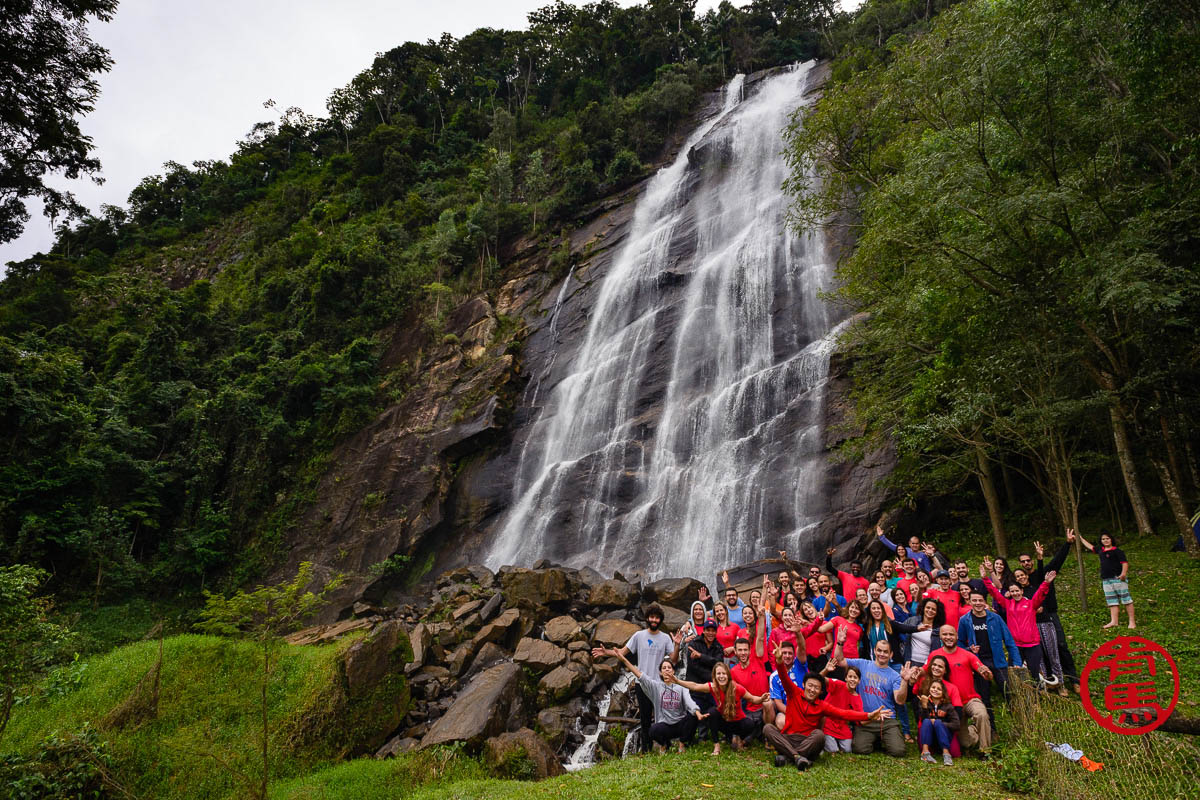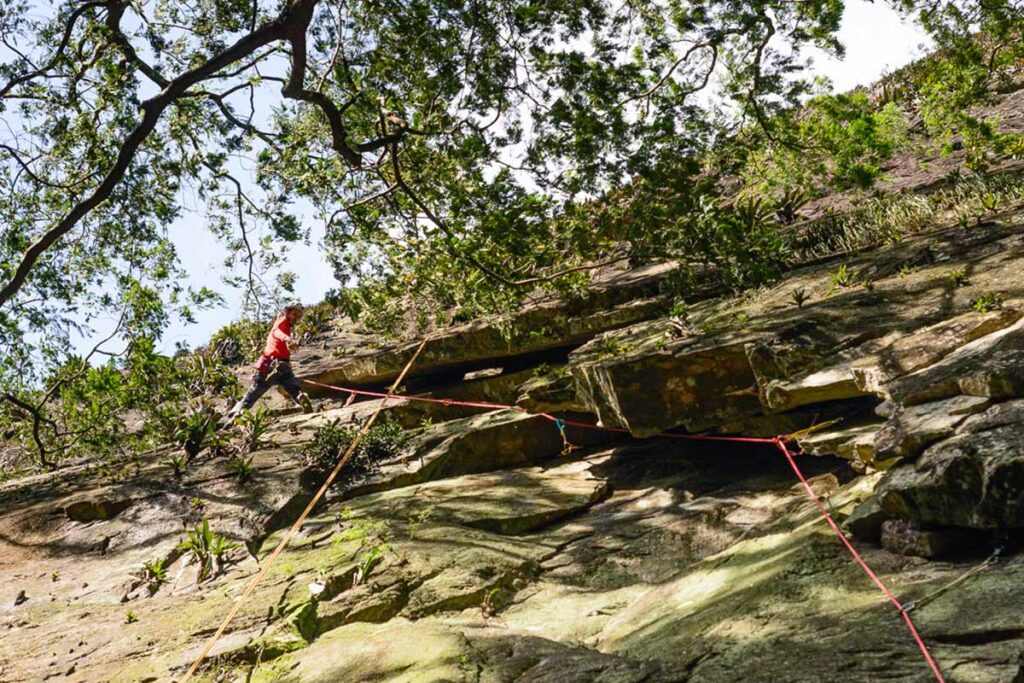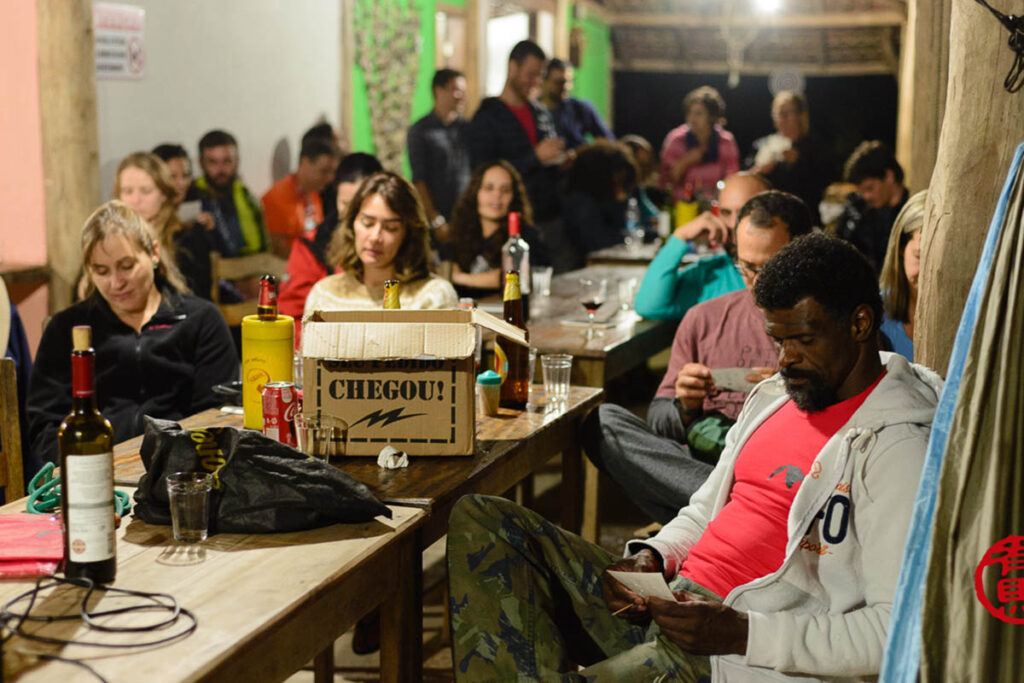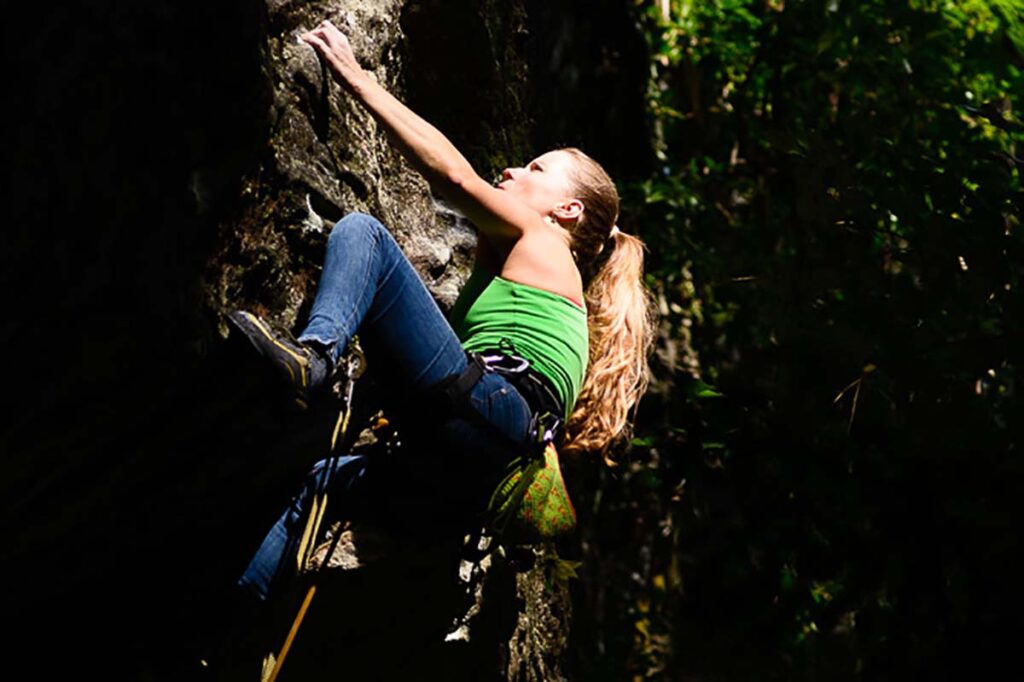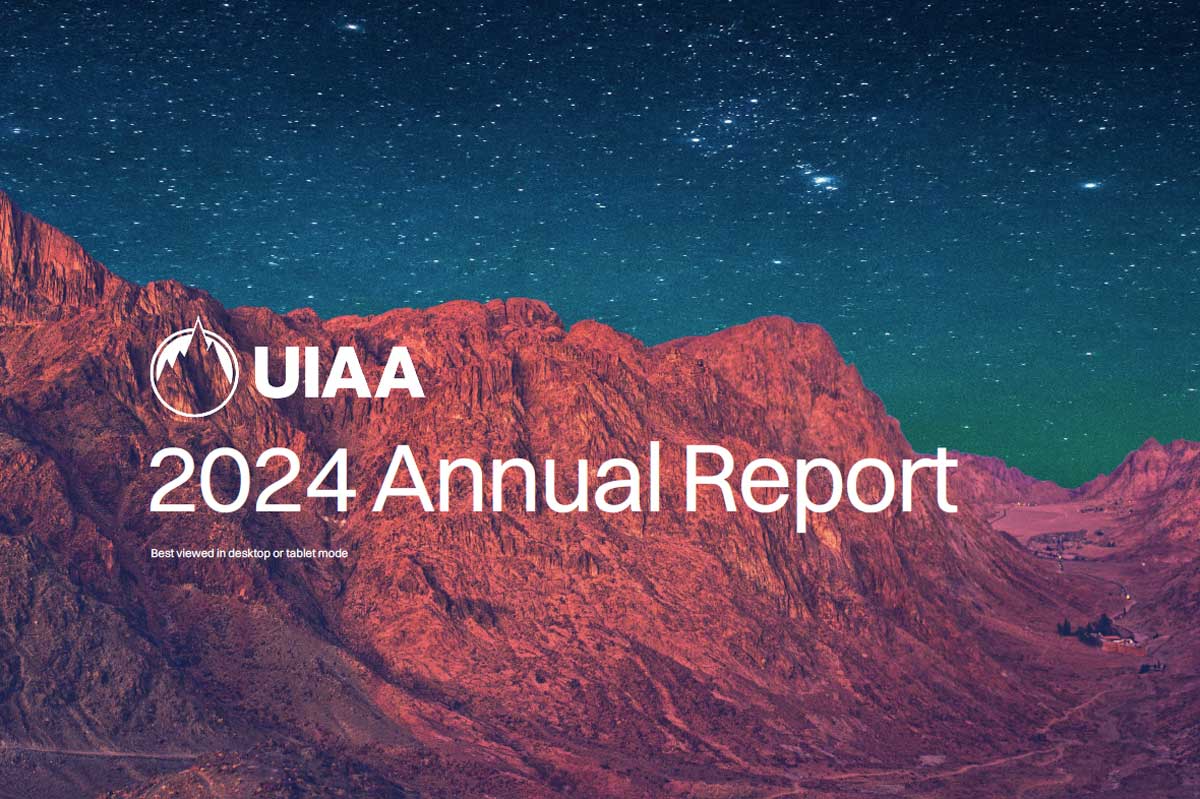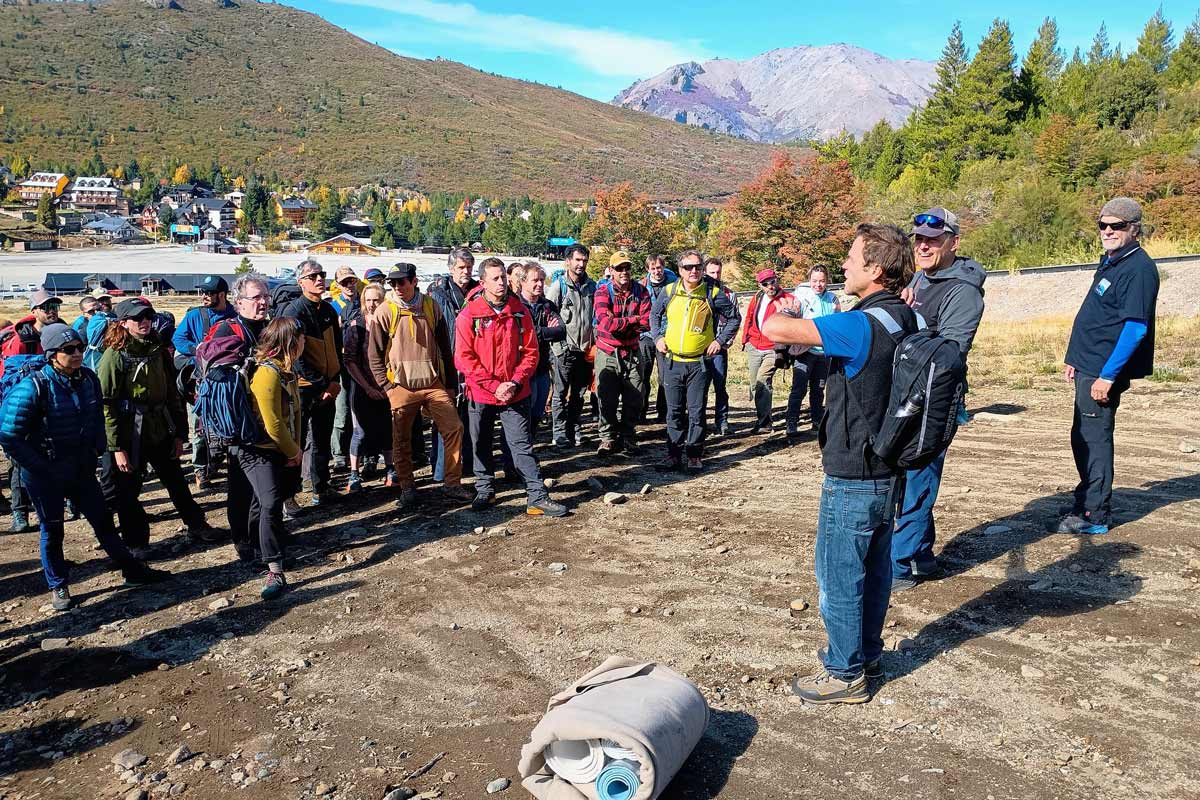Location: Castelo (City), Espírito Santo (State) – (Brazil)
Date: 30 November – 2 December, 2018
Links: Website – Social
Estimated Number of Participants: +200
ABOUT THE EVENT
The Capixaba Climbing Festival (XI Encontro Capixaba de Escalada) was created in 2006 by the Capixaba Climbing Association (ACE in Portuguese) to celebrate and develop climbing in the State and strengthen community building. Every year, the festival is held in a different town in order to promote and foster climbing and our ethics throughout the State and attract more people into practicing the sport. The festival brings climbers together from distinct parts of the state as well as different states.
Traditionally, one or two prominent Brazilian climbers are invited as Keynote speakers. Over the course of a regular or a long weekend, climbers rope up to face different challenges on the rock as well as join the parties. The celebration of climbing lifestyle and ethics are the heart and soul of the festival.
The 11th edition keeps the tradition alive and expands to embrace new challenges and goals, increasing the interface with the local communities and youth. It will be spread out into two consecutive weekends, one being dedicated to promoting climbing to the local community: there will be clinics presenting the basics of climbing, ethics to non-climbers, engaging locals in our sport and culture. The second weekend will focus on celebrating climbing for climbers with rock clinics, Keynote series, films, community involvement, social gatherings and lots of climbing opportunities. The local community will still be involved in the evening events.
The festival will take place in Castelo, a municipality located about 150km from the state capital, Vitória. Castelo has the highest number of developed climbing routes in the state, about 90 routes and still lots of opportunities for development. One of the poorly developed areas is the Forno Grande State Park, where climbing was forbidden for the past 18 years and is just about to reopen.
Due to ACE’s advocacy efforts, the State Parks agency has announced a more friendly approach to all visitation, including climbing, and Forno Grande and surrounding peaks are about to be opened for climbing.

The first route in the area, on Fio Rock, dates back to 1972, when Rio de Janeiro climbers set up a 700m, 5.10 route in a chimney system that was considered one of the hardest in the country at the time. This peak is in Estrela do Norte, a valley surrounded of granite spires reaching up to 400m for about 10 km. However, the most popular areas are the sport crags, with over 50 routes ranging from 5.8s to 5.13s and even a nice waterfall to freshen up.
This valley is also the location of the festival headquarters, where one of the climbing areas is located. The Furlan private property has many sport routes and many opportunities for developing bouldering, though there is not many problems set up yet. The headquarters highlights one of the local treasures: the relationship with the local community who warmly welcome climbers into their land and gets inspired by our accomplishments. Naturally, it is not only climbers’ feats that inspire them; the mountains themselves are an incredible source of curiosity and adventure spirit. It is not uncommon to run into locals who have used their everyday tools, such as a how or axes, and a pinch of courage, to defy the granites and reach the top of the peaks. The adventure spirit reflected on the exploration of the local mountains will certainly be incorporated into the planning of the festival this year.
The 11th edition will, then, highlight all the traditions of the area while being an avenue for furthering the climbing ethos in the municipality.
Espírito Santo is a Brazilian southeastern state full of big mountains that offer many adventure grounds. The mountains cross the state from north to south, forming a long line of big granite peaks that have been attracting climbers for about 70 years. The rock faces provide anything from short sport crags to over 1,000 meter multi-pitch routes – friction, crimpers and chimneys are the predominant styles. Despite the quantity and quality of the rock, the climbing community in the State is still incipient, though growing.
PARTICIPANTS
Organisers estimate that in 2018 the participants will be comprised of 200 climbers split between:
– 25% beginner climbers (local and youth)
– 50% intermediate climbers
– 25% advanced climbers
COMMITMENT TO SAFETY
One of the goals of the festival is to promote opportunities for developing climbing hard skills through intermediate and advanced clinics. The Brazilian Climbing and Mountain Hiking Confederation (CBME, abbreviation in Portuguese) and a full UIAA member has a partnership with the Rio de Janeiro Climbing Guides Association to offer these clinics, while ACE will be responsible for running the beginners clinics. Several of the top climbers in Brazil are certified guides and will be invited to run clinics or speak at the Keynote series.
To build a sense of stewardship and ownership in our event participants, a Leave no Trace for Climbing Workshop will be held.
Self-Rescue Clinics – Offered by CBME and Aguiperj
Building an Equalized Belay – Offered by CBME and Aguiperj
Improvisation Techniques – Offered by CBME and Aguiperj
Climbing Technical Skills – Offered by CBME and Aguiperj
Climbing 101 – Offered by ACE volunteering guides
Rappelling 101 – Offered by ACE volunteering guides
Slack-Lining 101 – Offered by ACE volunteering guides
Leave no Trace for Climbing Workshop – Felipe Pimentel, a NOLS instructor and LNT Master
YOUTH DEVELOPMENT
ACE will visit local schools to engage them in the festival. Their goal is to both attract more people to the climbing community and use climbing as a capacity-building tool for local youth to develop socially.
Four of the Climbing 101 and Rappelling 101 clinics will be geared only for kids age 6 to 15. Rappelling and slack-lining clinics are also a way to bring the young population of Castelo to the event. Slack-lining will be available at the event headquarters during both weekend. They will also be able to join the festivities and participate in the keynotes during the second weekend of the event.
COMMITMENT TO THE ENVIRONMENT
 CBME encourages climbers to follow the Leave no Trace protocols, which were adapted to Portuguese and the Brazilian culture as the Pega-leve program. But it is our understanding that our role in promoting environmental sustainability has to go beyond individual behaviors. Thus, ACE and CBME focus a great deal of their initiatives in the environmental conservation and access.
CBME encourages climbers to follow the Leave no Trace protocols, which were adapted to Portuguese and the Brazilian culture as the Pega-leve program. But it is our understanding that our role in promoting environmental sustainability has to go beyond individual behaviors. Thus, ACE and CBME focus a great deal of their initiatives in the environmental conservation and access.
Our access and conservation work involves promoting a close dialogue between the climbing community and land managers to promote sustainable climbing. CBME has published a Climbing Management Manual in 2017 showing the best practices that balance climbing values, access, and environmental protection. In the Espírito Santo State, ACE has led the debate with the State Environmental Agency (IEMA) to reopen the state parks for climbing – they have already opened one mountain park and the second one, around the festival’s main area, is about to be opened as well.
Environmental conservation is also a Core Principle of the Brazilian Climbing Principles and Values, and both CBME and ACE use management actions to promote all aspects and styles of climbing, respecting both the plurality of motivations and the environment, ensuring the preservation of natural areas and the climbing experience.
Not only climbing has to be carried out in a sustainable way, but it should also be used as an instrument of sustainable development for mountain areas, engaging locals into increasing their participation and income through welcoming climbers into their lands and towns. The relationship with private landowners in Castelo is another example how climbing can foster a specialized tourism in a sensitive manner, involving the local community and respecting their traditions and values.
INTERNATIONAL SUPPORT
The most immediate impact of this event is for the State climbing community, who will benefit from yet another climbing area in the State. The interconnection with the local non-climbing community also helps to develop climbing by both attracting people to the sport and presenting the climbing lifestyle, with all that entails, to the general public. This healthy dialogue helps to ensure long-term access to local crags and mountains.
Over the course of the ten previous editions, the festival has proven to set up the locations as national climbing destinations, and Pancas is at the top of the list. Pancas is home to 50 routes spread in 20 granite peaks and hosted the festival in 2012. The event helped to shine light into the great climbing opportunities and amazing mountains present in the area and Pancas has gained national notoriety.
By attracting people from different states and with CBME’s support, the possibilities of exchanging knowledge and experience increases and so does the impact in the Brazilian climbing community. It is, in fact, a two-way street, and this exchange helps to shape and is shaped by the local community.
Note: The Capixaba Climbing Festival is an independent event and not run by the UIAA. The safe running of the festival is responsible of the festival organisers. The Capixaba Climbing Association is a non-profit climbers association and advocacy group that is a CBME (the full UIAA member from Brazil) member. It represents climbers in the State of Espírito Santo.
The Capixaba Climbing Festival is supported by the following sponsors Deuter and Bonier and partners Sapo Agarras, Alto Estilo, and Conquista.
About the 2018 UIAA Rock Climbing Festival Award
PARTNER


